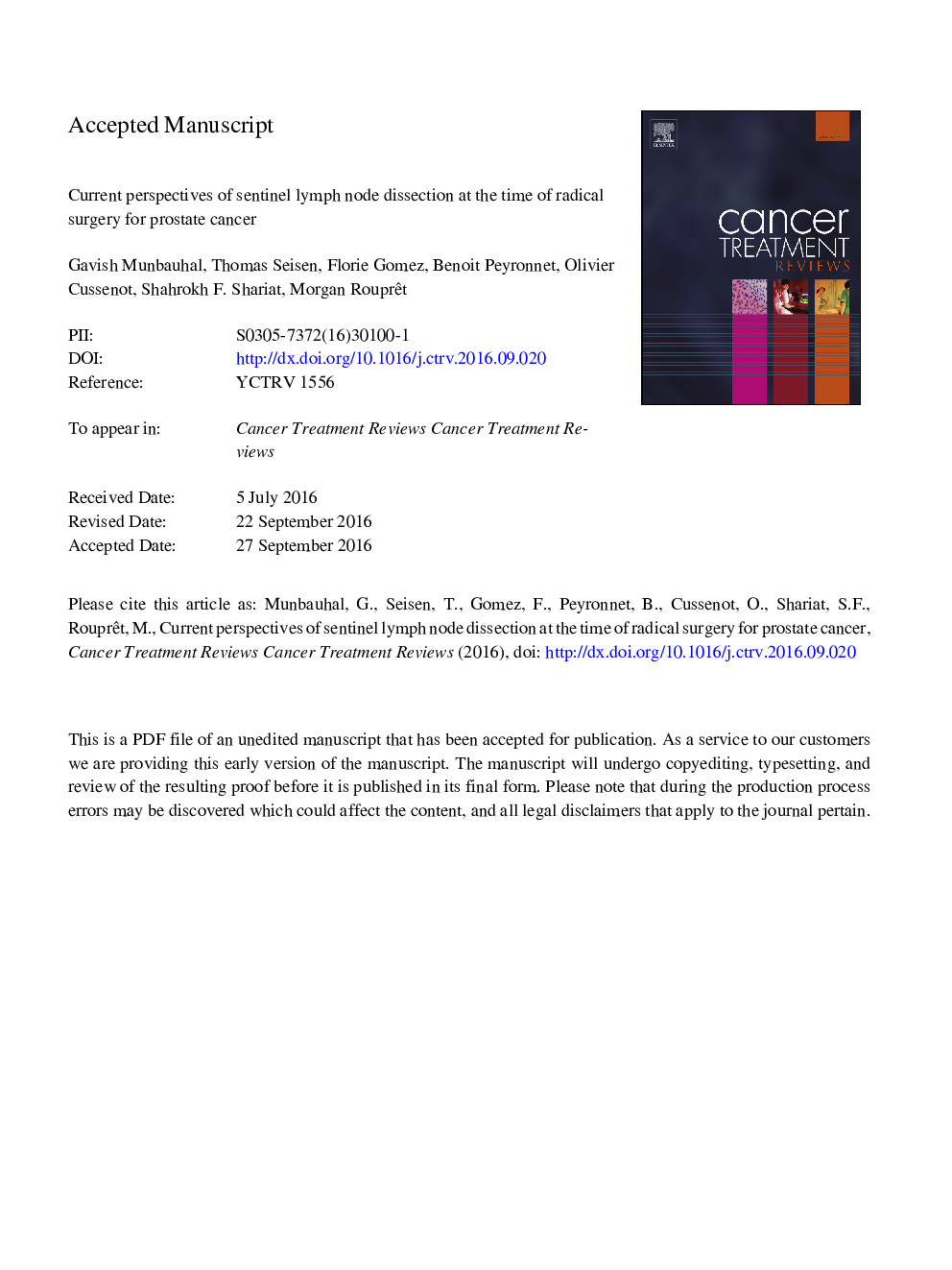| کد مقاله | کد نشریه | سال انتشار | مقاله انگلیسی | نسخه تمام متن |
|---|---|---|---|---|
| 8785960 | 1601108 | 2016 | 41 صفحه PDF | دانلود رایگان |
عنوان انگلیسی مقاله ISI
Current perspectives of sentinel lymph node dissection at the time of radical surgery for prostate cancer
ترجمه فارسی عنوان
دیدگاه های جاری از تشخیص گره لنفاوی نگهبان در زمان جراحی رادیکال برای سرطان پروستات
دانلود مقاله + سفارش ترجمه
دانلود مقاله ISI انگلیسی
رایگان برای ایرانیان
کلمات کلیدی
موضوعات مرتبط
علوم پزشکی و سلامت
پزشکی و دندانپزشکی
تومور شناسی
چکیده انگلیسی
The sentinel lymph node dissection (SLND) concept relies on the accurate detection of primary nodal landing sites and could represent a major advancement towards accurate, non-invasive pelvic staging in prostate cancer (PCa). Different iterations of the technique have now been validated and reproduced mostly in large-volume centres. The existing evidence denotes the feasibility and sensitivity of SLND, with encouraging pre- and intraoperative detection rates of 98% and 96%. Yet, current surgical practice mandates a backup template dissection due to a false negative rate, up to 7.1%, of tracer-guided surgery. In practice, SLND failed to achieve nodal detection in up to 20% of pelvic sidewalls. Despite scarce validated evidence, current consensus mainly attributes these false negative cases to altered prostatic drainage secondary to malignant obliteration of lymphovascular structures. In parallel, multiple SLND studies have highlighted the complex and variable drainage pathways from the prostate, furthering the established anatomical atlases. The most promising approach may therefore rely in magnetic nanoparticles and PCa-targeting ligands. However, in the absence of a clear sentinel node or region for the prostate, formal SLND is difficult to integrate in routine surgical practice for now. As such, tracer-guided dissection is only used as a complementary intervention to highlight first- echelon nodes and aberrant lymphatic pathways found beyond the commonly adopted pelvic lymphadenectomy templates.
ناشر
Database: Elsevier - ScienceDirect (ساینس دایرکت)
Journal: Cancer Treatment Reviews - Volume 50, November 2016, Pages 228-239
Journal: Cancer Treatment Reviews - Volume 50, November 2016, Pages 228-239
نویسندگان
Gavish Munbauhal, Thomas Seisen, Florie D. Gomez, Benoit Peyronnet, Olivier Cussenot, Shahrokh F. Shariat, Morgan Rouprêt,
